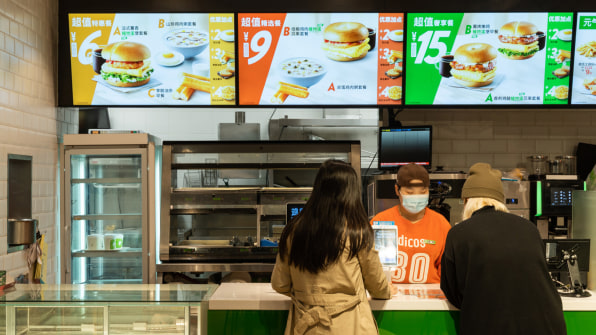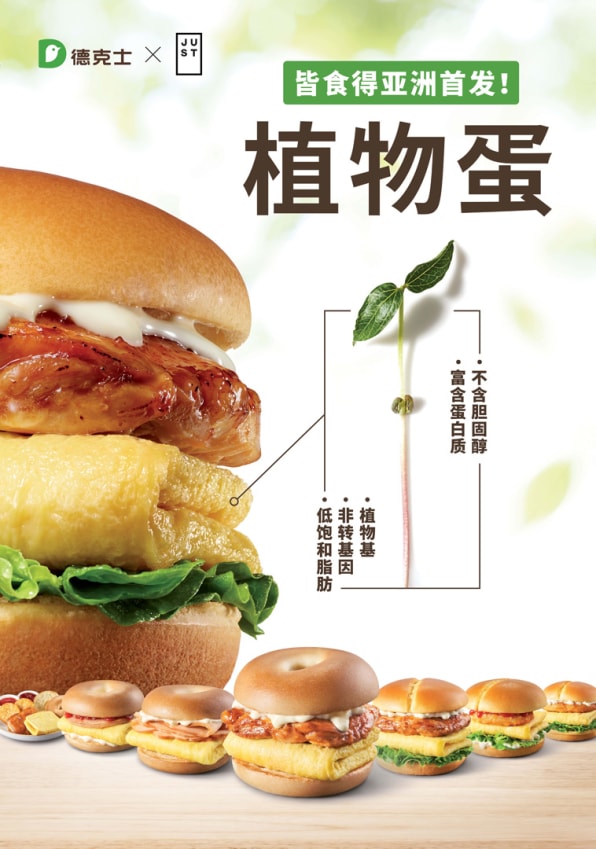The restaurant chain, which has about 500 locations across the country, is the first major fast food company to swap plant-based ingredients in place of the animal version on multiple items on its menu, including three different breakfast burgers, three bagel sandwiches, and a “Western” breakfast plate. “It’s pretty rare to see outright replacement of an item on a menu, let alone doing it across seven different menu items simultaneously,” says Zak Weston, foodservice and supply chain manager at the Good Food Institute, a nonprofit focused on plant-based food. “As well as doing it across 500 locations.”

The meals aren’t vegan; the chain, which is often compared to KFC, is serving the plant-based egg along with meat (although customers have the option to request a sandwich without meat or mayo). The restaurants also still offer a handful of items with eggs, such as a fried egg. But the restaurant recognized that even with meat as an ingredient, there were environmental benefits to replacing chicken eggs where it could, and decided to make the switch. It makes sense to appeal to flexitarians, says Weston, because most people who are eating plant-based food now aren’t vegan, but people who are choosing to avoid animal products only some of the time, often for health or environmental reasons. “The real market opportunity is omnivores,” he says.

Dicos uses Just Egg, a mung bean-based, cholesterol-free ingredient designed to scramble like a chicken egg. The company that makes it, Eat Just, says that the product has a 93% small carbon footprint and uses 98% less water than the animal alternative. It’s now available in thousands of retail stores in the U.S., and a growing number of restaurants. It’s possible that more will begin to make the choice to use it to replace eggs in some menu items, and that may also happen with other plant-based ingredients, in cases where consumers wouldn’t see a difference in the food and where there isn’t a cost premium.

“As plant-based alternatives—whether those are eggs or plant-based meat or dairy products like cheese—get better, as the quality improves, as the functionality and versatility improves, as the price has come down, this could become something that’s fairly commonplace,” Weston says. In China, that process may be accelerated. Before the COVID pandemic, the country was dealing with a swine flu outbreak that meant millions of pigs had to be killed, and food safety was top of mind for consumers. (Pork is the most popular meat in China.) COVID laid bare other supply chain issues in slaughterhouses. The food industry in the country is acutely aware of the risks. “I don’t see any way that a restaurant chain in China can’t be paying attention to that, and thinking through what are some of my long-term strategies for diversifying where I’m sourcing my proteins,” says Weston.
